Photographs: Reuters
India, which is one of the biggest victims of terrorism, is facing a peculiar situation. A body known as the National Counter Terrorism Centre which was to commence operations from March 1 is in the midst of a controversy thanks to nearly 13 states -- mostly non-Congress ones -- opposing the idea of setting it up.
A ministry of home affairs proposal, NCTC's main intention is to deal with terror threats and is being formed within the Intelligence Bureau.
Rediff.com's Vicky Nanjappa brings forth the different contours of the proposed NCTC, and also explains the raging debate over its formation.
The role of NCTC:
The role of the NCTC is to put to rest all possible confusion regarding intelligence sharing. It would be a hub where intelligence is analysed and a decision would be taken on whether it would be actionable or not.
The basic idea is to prevent confusion regarding intelligence inputs and also ensure that none of the police forces from the states enter into a blame game regarding intelligence sharing as one got to see during the 26/11 attacks in Mumbai.
...
Will NCTC become another ISI?
Image: Gujarat Chief Minister Narendra Modi has been on of the most vocal opponents to Centre's NCTC in its current formPhotographs: Reuters
NCTC's jurisdiction:
Further the body would have powers under the Unlawful Activities Prevention Act to carry out searches in any corner of the country and also make arrests.
It would have sweeping powers and could seek information from the Central Bureau of Investigation, National Investigation Agency, National Intelligence Grid, National Technical Research Organisation, Directorate of Revenue Intelligence and all seven central armed police forces including the National Security Guard.
Federal structure under crisis:
Nearly 13 states have raised strong objections to the setting up of the NCTC. Will it become another KGB or ISI (the spy agencies of Russia and Pakistan, respectively, notorious for their breach of power) is the big question that is being asked, considering it has sweeping powers over all states.
What the chief ministers have raised is that despite law and order being a subject matter of the state government under the Indian Constitution, the central government has chosen to override it with the creation of the NCTC.
Take this scenario for example. A suspected terrorist is holed up in a state. The officials of the NCTC would have the right to enter into that state and pick him or her up without informing the state machinery and deal with him under their laws.
The role of the state becomes redundant with such powers and states would have no say or role to play in the fight against terrorism.
The states go on to say that it would be an arbitrary exercise of power by the central agencies and this would have a bearing on the rights and privileges of the states as enshrined in the Constitution.
The other issue which some have raised is that NCTC suffers from certain deficiencies and has provisions that tantamount to usurping the legitimate rights of the state. The states have been complaining that the Union government on one hand says that fighting terrorism is the joint responsibility of the states and on the other it forms a body which has such super powers that it does not need to consult the state at all.
Moreover, the biggest ego clash between these states and the Centre is that the latter had not consulted the former before forming this body.
As Gujarat Chief Minister Narendra Modi puts it, "If you accept the responsibility of state governments then is it not your (Centre's) duty to consult them before forming laws?"
The other complaint is that the NCTC has been formed within the IB which has no accountability to Parliament.
What if NCTC arrests are politically motivated?
Image: A NIA officer inspecting the site of a bomb blast in MumbaiThe argument:
If one were to argue on behalf of the states then one would say that as per the Constitution there ought to be a proper distribution of power between the Union and the state government.
While subjects such as national defence, foreign policy, and issuance of currency are reserved to the Union list, issues such as public order, local governments and criminal law are under the jurisdiction of the state government.
The role of the NCTC may be to fight terror but terrorism is broadly defined as a criminal act and hence falls under the jurisdiction of the state government.
Now going by the argument of the central government they are bound to use the provision under Article 342 of the Constitution which gives the Centre powers to prevent illegal activities in any part of the country.
The apprehension:
The state governments are apprehensive that NCTC, which would be under the control of the Union government, could become so powerful that it would wipe out any power that the state governments would have in the fight against terrorism.
The powers of the NCTC makes it clear that it would have the right to analyse intelligence, act on it, conduct searches and also carry out arrests.
This effectively would mean that it would collect its data from the main feeder agency -- the IB -- and then go about its business on its own.
Until now it was the NIA which had such sweeping powers. However, even when the NIA was carrying out an operation it needed to inform the state governments before it could act.
This meant that the home secretary of the state and also the director general of police were kept in the loop. However, with the NCTC that appears to be missing. It is a body within the IB and does not need to keep any of the state machineries in the loop.
Moreover, considering that it is under the IB it would not be answerable to Parliament as well. This has made the states extremely apprehensive and they feel that it would lead to a witch hunt.
The argument however tilts a bit towards the state governments considering the fact that the subject matter is terrorism. Terrorism is widespread and has both inter-state as well as international ramifications. The basic intelligence is fed by the constable from the state and then it is passed on to the higher ups. The big question would be how the NCTC would work without coordinating with the state police?
Many lawmakers argue that the states ought to have been consulted and a proper framework worked out before setting up this body.
The states clearly want a say in the acts of the NCTC or else it would become such a powerful body that it would begin to act on the whims and fancies of the Union government.
Moreover, the NCTC has not been given a charter of only collecting intelligence. It is armed with the power to search and also arrest without consultation with the respective state governments. The state governments are worried that it may become a cocktail which could turn deadly as it works along with the IB.
Collection of intelligence is not an open affair. Hence the states would not even know what the agency is up to or thinking.
Without passing on any information an arrest could be made. States are clearly worried about two factors -- one is what if the arrests are part of a campaign against a government which is not similar to the one in the Centre, and the second is what if the state is trying to protect someone and he is picked up without their knowledge?
NCTC shouldn't be absolutely toothless
Image: A policeman keeps guard from behind a barricade outside the high court after a bomb blast in New DelhiPhotographs: Reuters
Can it be shot down?
Shooting down such an agency would be foolish as India does not have a great record when it comes to sharing intelligence.
The Maharashtra police in particular has been notorious where this issue is concerned and has always been quick to blame the IB for lack of information.
The NCTC would solve such a problem and to decide on whether the intelligence is actionable or not would be the power bestowed with the agency. Many in the security agencies feel that there is a need for one such hub where intelligence is gathered and analysed and later acted upon.
There is in no way that the states can counter this power which the agencies have since it is in national interest.
However, the debate could be extended when it comes to powers such as searches and arrests. There is a need for a consultation process on the subject. There is a dire need for the Union government to address this issue. Even if the Centre feels that interference on matters pertaining to terrorism by the state governments is hampering the cause it could still install a body which checks the accountability of the work undertaken by the NCTC.
It's all right that IB enjoys immunity, but then the same cannot be given to the NCTC as unlike the IB this body has the power to carry out an arrest. The breaking point between the Union and the states would be on this particular subject and if the Centre is able to make this body accountable to any independent body not under the control of any of the government then the states may feel a bit relieved.
However, the states would also have to take into consideration that such a body cannot be just an agency which only analyses intelligence. If this is going to be the case then we will get back to the same rut where after intelligence is analysed and passed on, but the state police never act on it.
We would get back into blame game mode then. States while seeking some accountability would also have to bear in mind that the NCTC needs to have operationalising powers as well. If this is taken away then the very meaning is lost.
In addition to this the role of the state government in fighting terror is another aspect that needs to be addressed. If the Union government controlled IB and the NCTC are going to do everything on this subject, then what would the states have to do? What if the states have information on terror activity?
Would they have to go through the process of informing the NCTC first thus causing a delay or would they get to act on their own?
Protecting the federal structure:
Lawmakers would argue that the Union government cannot be completely arrogant on this subject like the way it was acting during the Lokpal Bill impasse.
The country has to function as one, irrespective of which party is in power. India follows a federal system and this mandates that both the Union and state governments work in tandem. In no way can the Union government impose its will without consulting with the state governments.
For a federal system to succeed there is an urgent need to reach a consensus on matters such as terrorism, which is a national concern.
Check out our other top slideshows
...

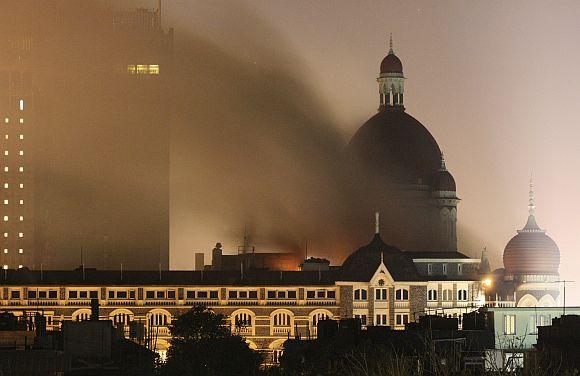
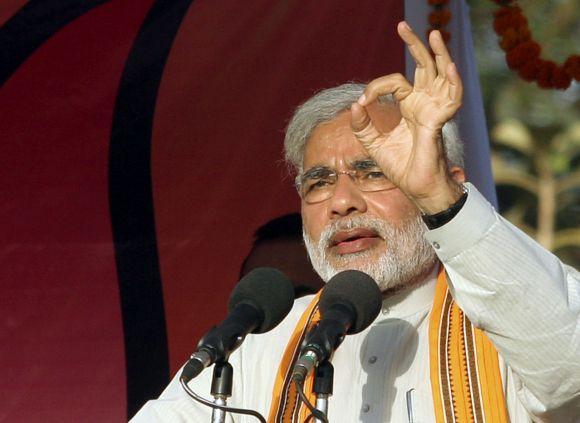
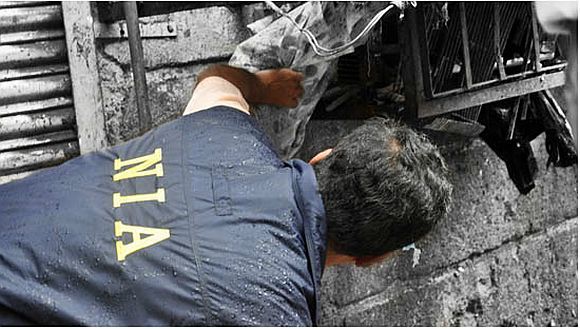
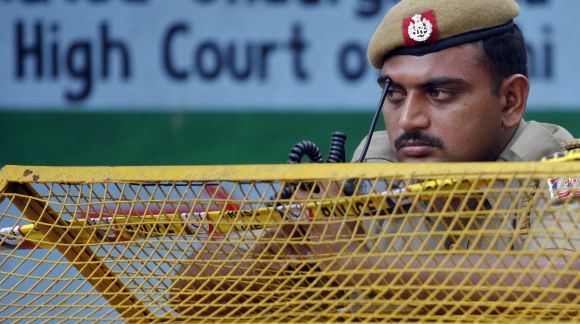
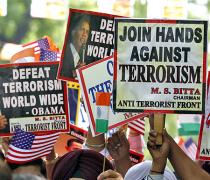
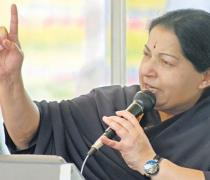
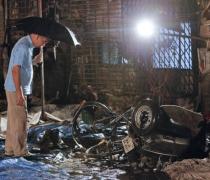
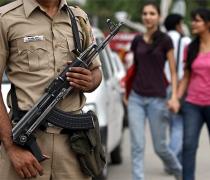
More from rediff